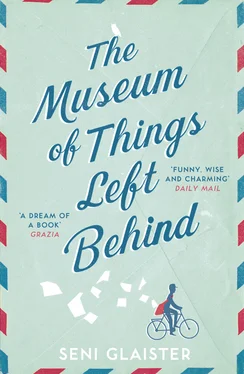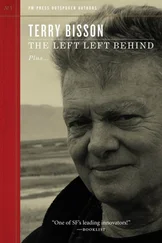‘Now, honoured guest, would you care to join us in a cup of our finest?’ He raised an empty cup in mock salute. In a synchronized movement, the assembled group swirled the dregs in theirs and brought them to their lips, showing their respect not just to their leader but to the many men and women who had sacrificed their own small plots to meet the targets set by their visitor. The American consultant smiled blankly until he realized he was supposed to join them in their tea-sipping ceremony. He shrugged and twiddled a pencil. The men around him were expecting something more. He shrugged once more, by way of an apology.
‘Guys, guys. I’m from the United States of America, don’t forget that! Tea might be the most popular drink in most nations, and it’s that global potential we’re tapping into here, but I’ve got to tell you, in the great US of A, tea is just not that important. In fact, it trails behind soft drinks, milk, beer and coffee.’ He let this fact sink in and, noting the assembled ministers’ look of disbelief, added for emphasis, ‘Actually, eighty per cent of the tea drunk in the US of A is served cold. I can’t imagine that tea as you know it would feature in any ranking of preferred beverages.’
Enzo Civicchioni visibly paled and there was a low growl of disgust from the commandant. The rest of the men were trying to redefine that strange country, which appeared to be devoid of any good taste or culture. ‘I’ll drink your health at the bar later. Don’t take it personally, guys. I’m just not a tea man.’ With that, he closed his laptop decisively and shuffled his belongings into a neat pile.
CHAPTER 7
In Which the President Has Doubt
Sergio was meeting in his private chambers with the man formally known as Signor Angelo Bianconi, chief of staff to the president, but more comfortably known by Sergio as Angelo, good friend and occasional drinking partner. A decade the president’s senior, he could easily be mistaken for the younger of the two. Lean, lanky and with an unruly fringe that refused to conform, his habitual lack of tie and jacket, and his blatant disregard for the hierarchical procedures that governed both Parliament and the country, Angelo’s languid nature belied his seniority within the cabinet. He had known Sergio all his life and had been there to share the milestones, from the woefully early death of Sergio’s mother, to the first breathtaking bicycle ride down the north-west run, from his ascendancy to president upon the sudden death of Sergio Senior, to his first non-elective election. As such, Angelo was the only cabinet member who really had the president’s ear. He was confidant, special adviser, chess adversary, bridge partner and, in all but name, the president’s deputy. He leaned forward, paper and pen at the ready, as Sergio paced backwards and forwards.
‘A few thoughts from that session, Angelo. Vlad – find out whom he’s fallen for. If she’s remotely suitable, let’s make sure her father finds out. That will hasten a marriage. And Cellini. He’s making me nervous. Check his bank account, and make sure there’s nothing to worry us. Too much or too little, either way I want to know. If we can rule out bad debt or blackmail, we can begin to work out what’s making him sweat. A speech. I need a good speech on this agricultural policy. I felt I was really on to something earlier. Was there anything there we can work on?’
Angelo consulted his notes. ‘Continuity for sustainability, I liked. And the legend bit, definitely something there. But this is a good-news speech, sir. Good news always takes at least seventy per cent fewer words to deliver than bad. I’ll get going on something straight away.’
The president stood with his back to the room, looking beyond the balcony to the Piazza Rosa. ‘Angelo. Something’s troubling me. I’m relatively new to this game and I understand that Feraguzzi has been running the economy well for a long time, against considerable difficulties, many of which were not of his own making. And I understand, too, that in comparison to our neighbouring countries we have probably fared better than most. But I’m wondering, Angelo, if it all stacks up.’
‘Stacks up how, sir?’ Angelo came to stand by Sergio and joined him in his appraisal of the view below, understanding that the trickier conversations were always much easier to broach without eye contact.
‘The numbers. Do they add up? If we’re not importing anything, and we’re going to sell everything we’ve got, and all we’ve got now is tea, what are our people actually going to live on?’
Angelo rifled through his mental store of justifications and rationale, supplied with such ease by their American consultant. ‘I suppose, Sergio, it comes down to ambition and desire, whether those things exceed or fall short of our needs and expectations.’
Sergio wanted answers not conjecture: ‘Our needs? But we’ve never needed anything. We’ve always had enough.’
‘Enough?’ probed Angelo.
‘Yes – enough food, enough tea, enough of everything. We’ve always been able to satisfy our needs without help from anyone.’
Angelo thought about this and tried to remember the consultant’s arguments, which had seemed so compelling, so urgent, at the time. ‘It’s not very fashionable, I mean on a global level, to simply sustain yourself. It seems that by trading and entering into import and export contracts with our neighbours our world standing might improve.’
‘But do we need our world standing to improve? Our neighbours don’t think ill of us – they don’t think of us at all. And that’s always been fine, hasn’t it? Being ignored by the rest of the world has actually served us quite satisfactorily. And, anyway, why do we need more? Whom do we offend if we’re satisfied with enough?’
‘I don’t know the answer to that, Sergio. I think we feel a duty to our people to aim higher, to be more ambitious for them.’
Sergio hesitated. Then: ‘I’ve always been interested in the notion of trade, of commerce, Angelo. It seems that the obsession the world has is whether we can ever have enough money to spend. And if we haven’t, how to get our hands on more. But it’s surely no coincidence that the English verb “to spend” can only be applied to the using up of two resources. Money and time. And we can choose how to spend both of these, can’t we? My concern, if I’m honest, is that we could find ourselves in pursuit of money to spend while finding that time is diminishing at an equal rate. We’ll all be working so hard that we won’t any longer have time to do anything else. We’ll have spent it all on the acquisition of money. And as we know that money can buy you pretty much anything but time, is that what we want for our nation?’
Sergio thought quietly for a moment, the puzzle clear in his eyes. ‘And I’m still left wondering, Angelo, what we’re going to live on, if all we’re growing is tea and we sell that to another country. What will we eat?’
Angelo paused. He had a fairly good idea, as he was no different from many of the people who lived in the valley. He had a mother and a brother under his one roof and a table to fill each evening and morning. But supposition in this scenario was not remotely appropriate. ‘I’ll make some enquiries, sir.’
Sergio nodded, giving the outward appearance of a man who had been appeased.
CHAPTER 8
In Which a Protestation Is Made
Sergio was in his private chambers, writing quietly while the rest of Parliament Hall slumped in May’s debilitating afternoon sun. With the hours of siesta well under way, all was quiet both inside and out and, apart from the rattles, creaks and groans provided by the state apartment, Sergio was able to enjoy something very close to silence. His breathing had begun to steady and he was forcing his mind to concentrate on the speech he was preparing for his State of the Nation address.
Читать дальше












